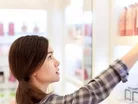Unilever enters Korean beauty market, investing $2.7bn in Carver Korea skincare

Unilever has acquired shares in a South Korean beauty business, Carver Korea.
It spent $2.7bn on the acquisition which totals seven times Carver’s 2016 sales.
Carver is a skincare and beauty brand popular in China, which produces face masks, lotions, and whitening creams which are a hugely popular beauty staple in Asia.
See also:
What Malaysians buy online during Ramadan
Alibaba invests in Cainiao Smart Logistics
September edition: Business Review Asia
The company was founded in 1999 and was taken over by Unilever’s fellow shareholders, Goldman Sachs and Bain Capital Private Equity, last year.
Carver is currently the third largest cosmetics company in South Korea, following leaders Amore Pacific and LG Household & Healthcare. Its main brand is AHC.
South Korea has a rapidly expanding beauty industry, a huge part of which it exports to China. However, it is thought that weaker sales to China caused by tensions between the two nations as well as competition for Korean skincare and beauty groups from brands like L’Oreal could moderate growth for the coming year.
This can be tempered by innovation as well as greater stability which investors are hopeful for, and Carver in particular is a popular and established brand in China which may mean it is insulated against this risk.
Unilever has recently made several niche personal care and beauty buys such as Dollar Shave Club and premium brands like Living Proof haircare and Hourglass cosmetics. It hopes to distribute these brands through its vast global network.
Alan Jope, president of Unilever’s personal care division has stated the deal will “significantly strengthen our position in North Asia, the largest skincare market in the world.”
South Korean beauty brands have become more popular across Asia thanks to the increasing popularity of K-Pop culture since the release of 2012 hit “Gangnam Style” by Korean artist PSY.
According to market research, the South Korean beauty market will be worth around $13bn in the coming year, and half of its current value depends on facial skincare, especially whitening products.
Unilever has made several acquisitions of fashionable companies recently to try and battle a slowdown of the revenue coming from its mass-market brands in a changing market.



